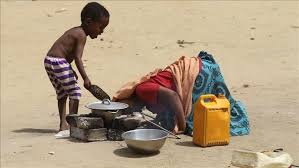Health officials in the Democratic Republic of Congo (DRC) have confirmed that a mysterious illness responsible for more than 50 deaths earlier this year was caused by malaria.
The National Public Health Institute revealed on Monday that laboratory tests identified malaria as the disease that claimed 52 lives and affected nearly 1,000 people in Equateur province. Symptoms reported among patients included fever, fatigue, vomiting, and significant weight loss. Initially suspected to be malaria or food poisoning, the diagnosis was confirmed after thorough testing of patient samples. Investigations into food, water, and drink sources are ongoing to rule out any secondary causes.
This is not the first malaria outbreak to hit the DRC in recent months. A similar outbreak in December, also initially unidentified, was later confirmed to be malaria. These recurring outbreaks highlight the persistent threat of the disease in the region, which already bears a high burden of malaria cases.
Understanding Malaria and Its Impact
Malaria, a life-threatening disease caused by Plasmodium parasites transmitted through the bites of infected female Anopheles mosquitoes, remains a significant public health challenge in the DRC and across sub-Saharan Africa. Symptoms typically include high fever, chills, nausea, and severe fatigue. Without timely treatment, malaria can lead to complications such as organ failure and death.
The DRC is one of the countries most affected by malaria, accounting for a substantial percentage of global cases. Factors contributing to its prevalence include limited access to healthcare, inadequate use of preventive measures like insecticide-treated mosquito nets, and poor sanitation.
Efforts to Combat Malaria
Health authorities in the DRC are ramping up efforts to contain the outbreak, including distributing mosquito nets, increasing public health awareness, and improving access to diagnostic tools and treatment. However, challenges such as insufficient funding, logistical issues, and resistance to treatment in some areas continue to hamper progress.
Global health organizations, including the World Health Organization (WHO) and Roll Back Malaria, stress the importance of sustained investment in malaria control and elimination efforts. Vaccination campaigns, such as the rollout of the RTS,S malaria vaccine, have shown promise in reducing cases in children under five, the group most vulnerable to the disease.
The ongoing outbreaks in the DRC underscore the urgent need for more substantial malaria prevention and control strategies to protect vulnerable populations and save lives.












Leave a comment